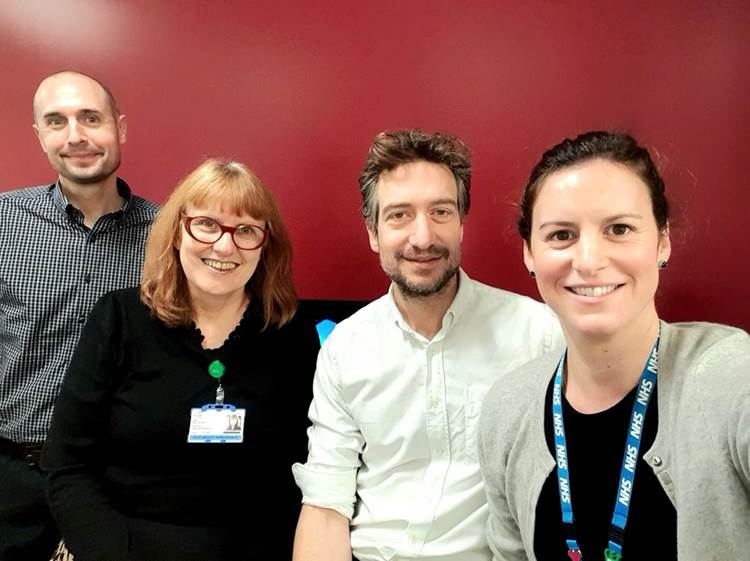Cancer of unknown primary (CUP)

 en
en 
Cancer of unknown primary (CUP) means that your doctor is not sure where the cancer started. They have found a secondary cancer but have not been able to find the primary site.
A primary cancer cannot always be found because:
It may take several tests to confirm that the primary cancer cannot be found and for CUP to be diagnosed. Once these tests have taken place, your doctor may know that the cancer is a secondary cancer, but may not be sure where the primary is. This is called a malignancy of unknown primary origin (MUO).
Some of the tests for cancer are done at Whipps Cross, Newham or The Royal London hospitals. Clinic appointments and treatment for CUP mostly happen at St Bartholomew’s Hospital. If you are having tests for CUP you will be given the contact number for a clinical nurse specialist who will support you throughout your treatment.
Your doctor may need to do a series of tests to find out more about your cancer. One of these tests is a biopsy. This is when a small sample of cells is removed from the secondary cancer and examined under a microscope.
You will also usually have a CT (computerised tomography) scan or MRI (magnetic resonance imaging) scan. These scans build up a picture of the inside of your body.
Further information about all cancer investigations can be found on the Macmillan website.
Waiting for your test results can be a difficult time. It may take a few days or a couple of weeks for test results to be ready. You may find it helpful to talk with your partner, family or a close friend. Your specialist nurse can also provide support.
The CUP team at Barts Health have regular multidisciplinary team meetings (MDTs) where a group of health professionals with expert knowledge iwill manage your investigations and treatment.
You do not attend the meeting but a member of the CUP team, usually your clinical nurse specialit, will tell you about the results of the meeting.
You may be given a choice of treatment options, which your specialist will discuss with you. If you don't understand what you've been told, let the staff know so they can explain again.
Before you have any treatment, you will need to give permission (consent). Further information about types of treatment used for treating cancer of unknown primary is available on the Macmillan website.
The cancer of unknown primary clinic is at St Bartholomew’s Hospital and is usually held on a Friday.
If you need hospital transport, this can be arranged. In some cases we can also help with the cost of transport please ask your specialist nurse or visit the Macmillan Information Centre.
You will see your specialist doctor in the clinic after the multidisciplinary team has met. Your doctor might talk to you about:
It is a good idea to take someone with you when the treatment options are first explained. You may also find it useful to have a list of questions ready to make sure you get the information you need.
The Cancer of Unknown Primary team at Barts Health include the following staff:
A doctor trained in diagnosing and treating cancer patients.
A doctor who is expert in interpreting
X-rays and scans. They may also perform biopsies (taking tissue samples) with the aid of imaging techniques.
A doctor who looks at tissue samples under a microscope to search for cancer cells.
An experienced cancer nurse who acts as your key worker. They will give you advice and support as you go through investigations and treatment and support you through your care pathway.
The palliative care team specialises in relieving pain and other symptoms, including psychological difficulties caused by cancer.
The co-ordinator provides administrative support to the CUP team and aims to ease the pathway from referral to treatment.
The CUP Team are a team of experts, and will work with you to conduct and provide the best care plan possible.
If you have any concerns, please talk to the team who will be considerate of your decisions and wishes.
The CUP/MUO service does not replace the established two week wait pathways.
GP referrals for suspected MUO/CUP should be made via Barts Health's multi-disciplinary rapid access diagnostic centre using the dedicated referral form and sending it via ERS.
The service can be found under 2WW – cancer of unknown primary.